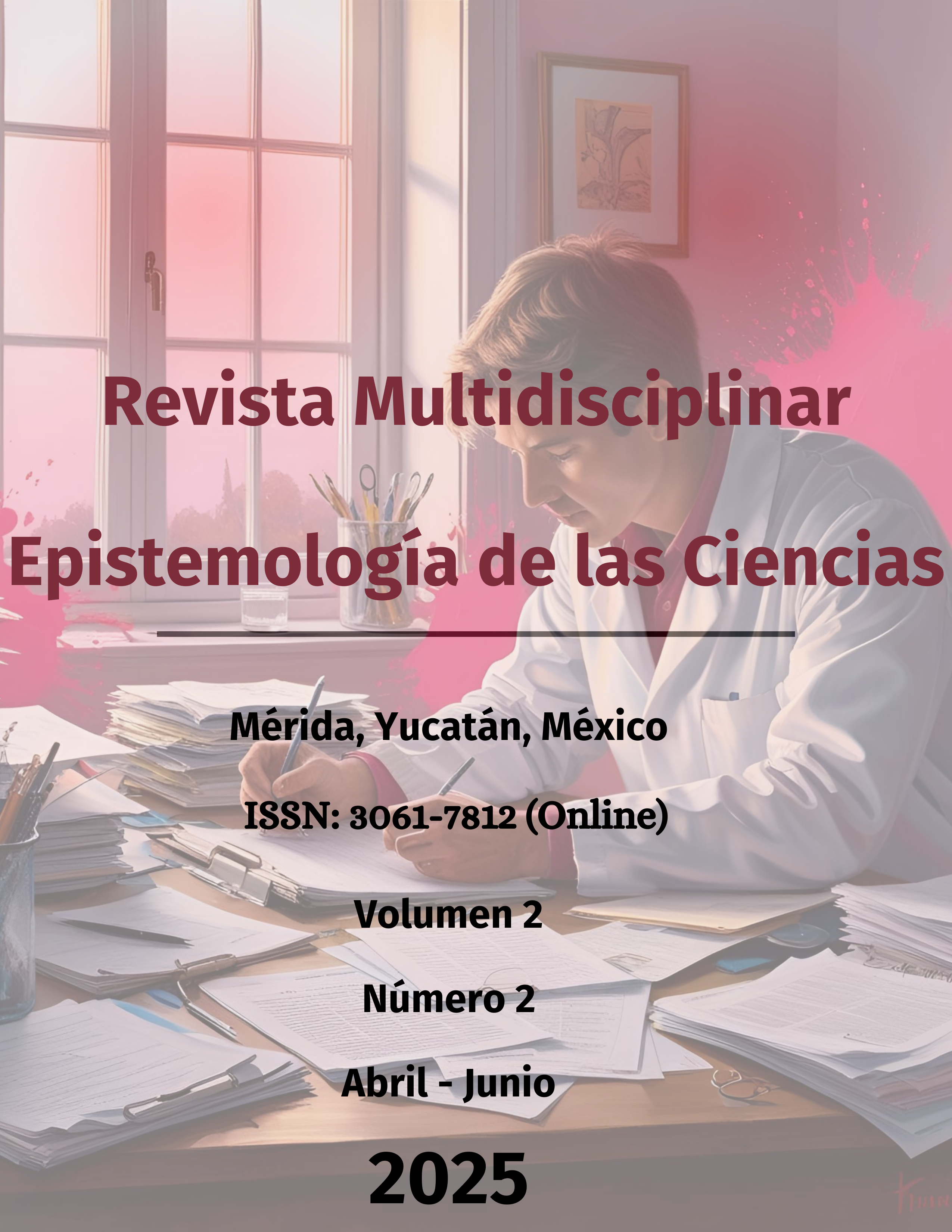Epistemological believes in the construction of business reality from evaluative management
DOI:
https://doi.org/10.71112/qg37n840Keywords:
business reality, uncertainty, complexity, epistemological reflection, evaluative managementAbstract
In the contemporary business landscape, characterized by uncertainty and complexity, it is imperative to develop an innovative understanding of management. Beyond traditional management, we need an evaluative management approach that impacts decision-making, optimizes resource valuation, and fosters commitment. These imperative demands a deep epistemological reflection, that’s why the overall purpose of this study was to interpret business reality from the epistemological perspective of evaluative management. The hermeneutic phenomenological method was employed, from which new understandings of this phenomenon emerged. The findings revealed two emerging categories: "the reflective evaluation of business processes" and "the transcendence of the traditional dominant function of the firm." It is concluded that management must be conceived beyond a technical procedure. It is crucial to integrate cultural dynamics, interpersonal relationships, and the subjectivity of human experience as central elements to foster organizational efficiency and resilience.
Downloads
References
Álvarez, J. (2001). Evaluar para conocer, examinar para excluir. Morata.
Berger, P., & Luckmann, T. (2001). La construcción social de la realidad. Amorrortu. (Obra original publicada en 1966).
Cazau, P. (2020). La teoría del caos. Biblioteca Virtual OMEGALFA.
Chiavenato, I. (2001). Administración: Proceso administrativo (3ª ed.). McGraw-Hill.
Duque, R. (2001). Disciplinariedad, interdisciplinariedad, transdisciplinariedad. Vínculos y límites. Semestre Económico, 4(7). https://revistas.udem.edu.co/index.php/economico/article/view/1412
Echeverría, R. (2003). La empresa emergente: La confianza y los desafíos de la transformación. Granica.
Goleman, D. (1995). Inteligencia emocional: Por qué puede ser más importante que el cociente intelectual. Bantam Books.
Granell, E. (1997). Éxito gerencial y cultura: Retos y oportunidades en Venezuela. Ediciones IESA.
Márquez, E. (2000). Los valores de la investigación cualitativa, como aportes a la investigación cualitativa. Ponencia presentada en el I Congreso Internacional de Pedagogía Alternativa, UPEL-IPB, Barquisimeto, Venezuela.
Martínez, M. (2003). Transdisciplinariedad y lógica dialéctica: Un enfoque para la complejidad del mundo actual. Conciencia Activa, 21(1). https://www.aemia.edu/15044086/Transdisciplinariedad_un_enfoque_para_la
Mejías, C. (2023). Revista In Situ, 6(6), 353–366. Universidad Nacional Experimental del Yaracuy. https://revistas.uny.edu.ve/index.php/insitu/article/view/353
Morin, E. (1994). Introducción al pensamiento complejo. https://bit.ly/3i2hwTY
OpenAI. (2025). Gemini: Gerencia Evaluativa. https://gemini.google.com/app
Sandín, M. P. (2003). Investigación cualitativa en educación: Fundamentos y tradiciones. Ediciones McGraw-Hill.
Senge, P. (2005). La quinta disciplina en la práctica. Granica.
Solís, Y. (2021). La posmodernidad en los fundamentos del sistema educativo costarricense. Revista ABRA, 41(62), 35–50. https://doi.org/10.15359/abra.41-62.2 DOI: https://doi.org/10.15359/abra.41-62.2
Sosa, O. (2012). Gerente edificador de organizaciones espiritualmente inteligentes en las empresas del nuevo milenio [Tesis doctoral, Universidad Nacional Experimental de los Llanos Centrales Rómulo Gallegos].
Vélez, M. (2023). Gestión universitaria: Una mirada colectiva en contextos complejos [Tesis doctoral, Universidad Nacional Experimental de la Fuerza Armada].
Zavarce, C., Briceño, M., & Chacín, M. (2009). Descriptores del pensamiento gerencial emergente. Revista Visión Gerencial, 8(1), 187–201. http://132.248.9.34/hevila/Visiongerencial/2009/vol8/no1/14.pdf
Downloads
Published
Issue
Section
License
Copyright (c) 2025 Multidisciplinary Journal Epistemology of the Sciences

This work is licensed under a Creative Commons Attribution 4.0 International License.











